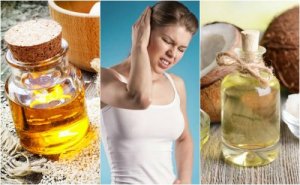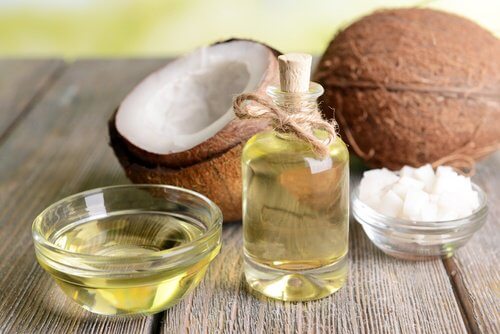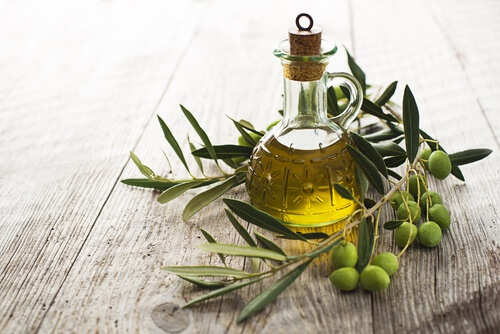7 Natural Remedies to Reduce Ringing in Your Ears


Reviewed and approved by the doctor Maricela Jiménez López
Tinnitus, or ringing in the ears, is a bothersome symptom that can be caused by the accumulation of wax, infections or wounds in the ears. Today, we’re going to show you some natural remedies to help reduce ringing in your ears.
It’s a faint sound that you hear in one or both ears. It almost always comes along with headaches, difficulty hearing, or concentration problems. It could happen for long, sustained periods of time, but it can also happen only occasionally, not causing many problems.
Though it’s not usually a serious problem and it’s normal for it to happen occasionally, it’s best to treat it to avoid any major issues.
Luckily, there are 100% natural solutions that can help reduce ringing in your ears and bring you relief. Read on and find out what they are!
1. Sesame seed oil

Sesame seed oil has anti-inflammatory properties that help to calm irritation. This makes it a great option to reduce ringing in your ears.
Applying it directly will unblock the ear canals and make it easier to get rid of excess wax.
How to use it
- First, warm up a small amount of sesame seed oil and apply 5 drops to each ear canal.
- Check the temperature before using it because it shouldn’t be too hot.
- Tilt your head so that it reaches the inner part of your ear. Stay in this position for 2 or 3 minutes.
- Then, remove the remains with a clean tissue.
Read more: Ringing in Your Ears: How to Reduce it with Your Diet
2. Apple cider vinegar to reduce ringing in your ears
The organic acids in apple cider vinegar are great for relieving the infections that cause hearing problems and ringing in the ears.
This natural alkaline counteracts the attacks of viruses and bacteria, and helps to clean ears blocked by wax.
How to use it
- Dilute a tablespoon of apple cider vinegar in a glass of tepid water and drink it on an empty stomach.
- Mix the product with water in equal parts and apply 3 to 5 drops in the affected ear.
3. Coconut oil

Widely-known for its high levels of antimicrobial and anti-inflammatory agents, coconut oil is an alternative remedy for relieving tinnitus and ear infections.
It alters the environment of the viruses and bacteria and thus prevents them from proliferating in the ear canals.
How to use it
- Warm a small amount of organic coconut oil and apply 3 to 5 drops in the affected ear.
- Tilt your head so that it reaches the inner part. After 3 minutes, remove the remains of wax with a moist tissue.
4. Hydrogen peroxide
The antimicrobial properties of hydrogen peroxide can help to treat ringing in the ears when it’s caused by an infection or excessive wax production.
Its components calm irritation in the affected ear and reestablish circulation in the area to bring relief.
How to use it
- Apply 3 or 4 drops in the affected ear and leave it to act for 5 minutes before draining it.
- Repeat this every 6 hours.
Read more:
5. Olive oil

Thanks to its antioxidants and essential fatty acids, this vegetable oil is a great natural solution for ear health issues.
While consuming it strengthens the immune system, using it directly calms inflammation and tinnitus.
How to use it
- Heat a little extra virgin olive oil. Once warm (but not too hot), apply 3 drops to the affected ear.
- Let sit for 3 minutes with your head tilted, then drain.
6. Pineapple
Eating several portions of pineapple a day can help reduce ringing in your ears and prevent ear infections.
This is thanks to an enzyme called bromelain, which improves blood circulation to fight inflammation and prevent attacks from viruses and bacteria.
How to use it
- Eat up to 3 slices of pineapple a day any time you start having trouble with this symptom.
7. Grapefruit

Low in calories and rich in antioxidants and natural fibers, grapefruit is another great food for speeding up recovery from ear-related problems.
Its juice is anti-inflammatory and helps improve blood flow to control infections and ailments.
How to use it
- Drink 2 or 3 glasses of grapefruit juice if you have ringing in your ears.
If this symptom is bothering you, try one of these remedies to help you out. But if it becomes persistent, see a doctor to find out whether it’s due to an injury or a more serious infection.
All cited sources were thoroughly reviewed by our team to ensure their quality, reliability, currency, and validity. The bibliography of this article was considered reliable and of academic or scientific accuracy.
- Peña M. A. (2008) “Bases fisiopatológicas del tratamiento del tinnitus neurosensorial: Rol del sistema auditivo eferente”, Rev. Otorrinolaringol. Cir. Cabeza Cuello 2008; 68: 49-58
- Tunkel, D. E., Bauer, C. A., Sun, G. H., Rosenfeld, R. M., Chandrasekhar, S. S., Cunningham, E. R., … Whamond, E. J. (2014). Clinical practice guideline: Tinnitus. Otolaryngology – Head and Neck Surgery (United States). https://doi.org/10.1177/0194599814545325
- Enrico, P., Sirca, D., & Mereu, M. (2007). Antioxidants, minerals, vitamins, and herbal remedies in tinnitus therapy. Progress in Brain Research. https://doi.org/10.1016/S0079-6123(07)66029-4
- Curet, C., & Roitman, D. (2016). Tinnitus–evaluación y manejo. Revista Médica Clínica Las Condes, 27(6), 848-862.
- De Luis, D. A., & Aller, R. (2008, May). Ajo y riesgo cardiovascular. In Anales de medicina interna (Vol. 25, No. 5, pp. 237-240).
This text is provided for informational purposes only and does not replace consultation with a professional. If in doubt, consult your specialist.








